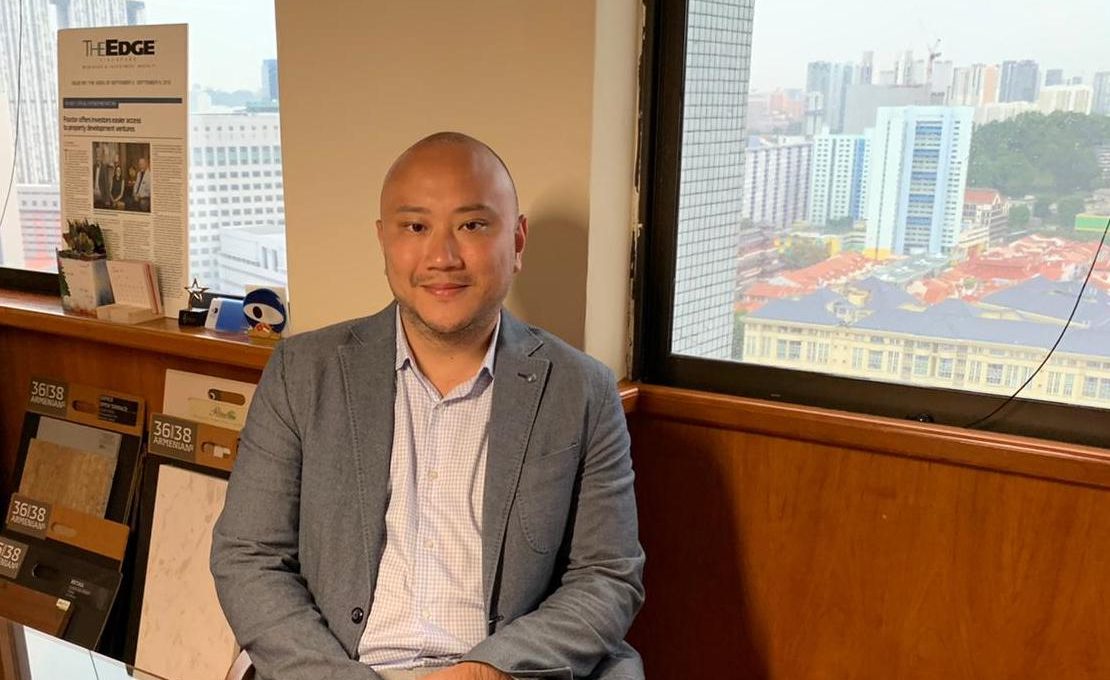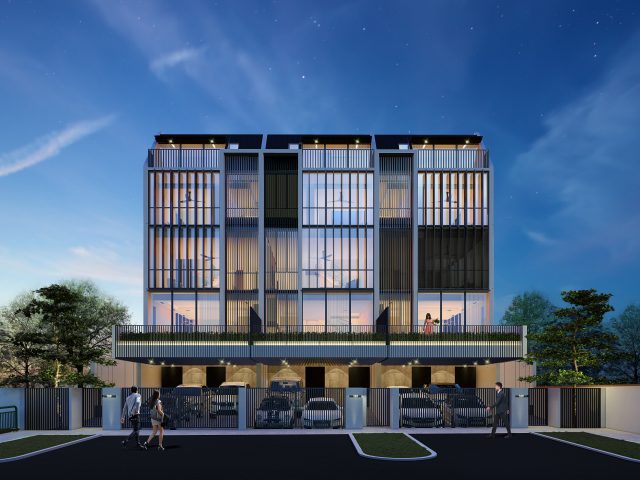Catch my interview with securities.io here.
You have an interesting and diverse life story, having spent 17 years in the civil service as a Republic of Singapore Air Force Officer, and Pilot. How did you transition from such a career to launching your first real estate investment company Hanson Court Pte Ltd?
I had two passions growing up. One was Aviation, and the other was Real Estate Investment. I enlisted as a pilot in the Air Force when I was 19 years old and was offered a government scholarship to further my studies in Australia. At 21 years old, I bought my first commercial real estate, which was a retail unit in a shopping mall in Singapore. By the time I graduated at 23 years old, I had sold the retail unit for about double the purchase price, netting me more than 10x return on equity. I was so intrigued by this that I could not wait to buy my next property, this time, a residential unit in Singapore. I sold this unit six years later for more than double the purchase price as well.
I knew I was on to something. So I set up my family investment vehicle Hanson Court Pte Ltd (named after the first property we acquired) after completing my Pilot training in the Air Force in 2009 (during the financial crisis). We went on to buy ten commercial and industrial units in Singapore, with a strategy to add value to the assets through asset enhancement. By doing so, we managed to push the rental income up substantially and sold the units five years later, achieving more than 40% IRR (p.a.).
After serving for 17 years, in 2018, I left the Air Force to focus on my startup Fraxtor.
In order to familiarize our readers better, could you share with us what Hanson Court Pte Ltd does?
Hanson Court Pte Ltd was formed as a property investment company in Singapore. During the financial crisis in 08/09, we acquired many commercial and industrial assets for below valuation and held on to them until the market recovered, earning us more than 40% IRR. At the moment we are still invested in commercial units in Singapore and have also ventured abroad to China to develop properties.
Was there something that your saw or experienced operating Hanson Court that inspired you to launch Fraxtor, a company that specializes in offering tokenized and crowdfunded real estate?
Through my experience investing in property, I realised that some pain points could be addressed through tokenisation. First, it was the large capital outlay that is required to purchase a property which makes it difficult for investors to diversify their portfolio. Second, it was the lack of liquidity of the investment, which makes it prohibitive for people who want to invest in the short term. Third, it was gaining access to the global real estate market. The know-how required to conduct the due diligence on the property and even to structure the investment makes it difficult for individuals to invest overseas.
With a platform like Fraxtor, we can allow investors to co-invest with us from as low as $10,000 and enjoy a hassle-free investment experience.
Could you elaborate on how Fraxtor sources which property to invest in?
We currently focus on opportunistic and value-add projects in matured markets like Australia, Japan, Singapore and Europe (including the UK). These are markets that our team is more experienced as well.
First, we look at two key factors: location and potential. Location is something we cannot change. Hence it is essential to select projects based on the accessibility and desirability of the asset’s location. Potential is what we can unlock in the property through redevelopment or asset enhancement initiatives. This we feel would be the allow us to increase the value of the property.
Next, we look at the financial structuring of the asset. We look at the best way to structure the capital stack of the investment to maximise the return for the investor. In the current market situation, we are looking at 10+% IRR for value-add projects and 15+% IRR for opportunistic projects.
Projects that meet our criteria would be presented to our investment committee for selection.
How long are the properties held? Is the goal to tenant them, or to flip them for capital gains?
The duration of the holding period depends on the type of property and the strategy we adopt. For our development projects, we aim to sell the assets as soon as possible to unlock the return for our investors. This would probably take between 1.5 to 3 years. For our investment projects, the goal is to add value to the assets through enhancement initiatives, increase the net operating income and subsequently sell them for capital gains. This would take between 3 to 5 years.
Are monthly or quarterly updates issued to investors? What type of information can they access?
Investors are updated as and when there are updates on the property. Investors are able to access the information memorandum for the property as well as the financial feasibility study that we had done for the project.
Where is Fraxtor regulated and what licenses does it have?
Fraxtor is currently exempted from licensing in Singapore as we only deal with accredited investors.
Could you tell us about some of the current investments that you offer, such as the location and property type?
Our current project is to redevelop a residential landed property in Singapore. The property is situated in Adelphi Park Estate along Upper Thomson Road. We plan to demolish the existing property and build two semi-detached units on the land.
Is there anything else that you would like to share with our readers?
Fraxtor will be expanding our operations in Australia soon and we are in the process of obtaining an Australian Financial Services Licence.





